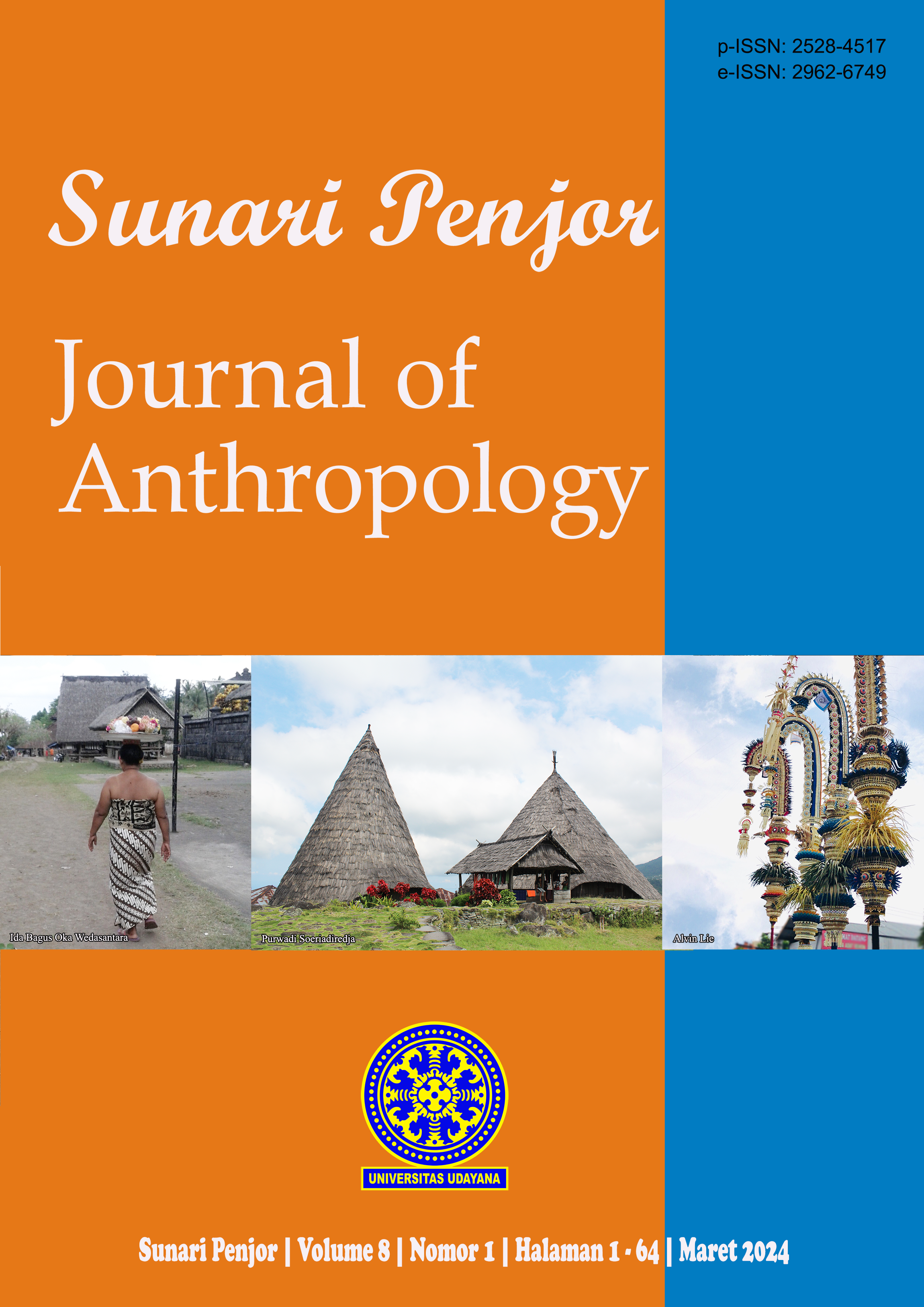Transformasi Mbaru Gendang di Kampung Ruteng Pu’u
Abstract
Every region in Indonesia has cultural characteristics that are visible and manifested in one of them in form of traditional house architecture. The house is one of earliest forms of human knowledge which is only used as a place, shelter, protection from threats from natural environment or made according to their needs. As human experience and knowledge increases, both external and internal influences change little by little the initial form of traditional house. The main objective of this article is to understand the transformation of traditional mbaru gendang house in Ruteng Pu'u Village, the next objective is to understand the function of mbaru gendang in Ruteng Pu'u community. The method in this research is based on ethnographic principles, through interviews with traditional elders of Ruteng Pu'u Village, observation, literature study, and analyzing data obtained from the research field. The results research show that initially mbaru gendang did not have walls and windows and kitchen was still one with mbaru gendang. Currently mbaru gendang has walls and windows, as well as a separate kitchen from mbaru gendang. For Ruteng Pu'u community, this change does not eliminate identity of mbaru gendang as traditional house of people of Ruteng Pu'u. The function of mbaru gendang is still same as original function of mbaru gendang, namely mbaru gendang remains center for carrying out ceremonies, traditional assemblies, deliberations, and social orders.
Downloads
References
Lon, Y.S., & Widyawati, F. (2020). Mbaru Gendang, Rumah Adat Manggarai, Flores. Kanisius.
Mashuri. (2010). “Perwujudan Konsep Dan Nilai-Nilai Kosmologi Pada Bangunan Rumah Tradisional Toraja”. Ruang: Jurnal Arsitektur, 2(1), pp. 1-8.
Maslow, A.H. (1954). Motivation and Personality. Harper &. Row.
Paeni, M. (2009). Sejarah Kebudayaan Indonesia Sistem Pengetahuan. Rajawali Press.
Parli, W., Darajad, S., & Kiwang, A. S. (2019). “Makna Compang Dalam Perspektif Masyarakat Suku Watu Baru Di Desa Watu Baru Kecamatan Macang Pacar Kabupaten Manggarai Barat”. Sosioreligius: Jurnal Ilmiah Sosiologi Agama, 4(2), pp. 95-106. https://doi.org/10.24252/sosioreligius.v4i2.13368
Spradley, J.P. (2007). Metode Etnografi. Tiara Wacana.
Subiyantoro. (2010). “Transformasi Loro Blonyo–Rumah Joglo dalam Analisis Struktural”. Humaniora, 22(3), pp. 327-335. https://doi.org/10.22146/jh.1003
Verheijen, J.A.J. (1991). Manggarai dan Wujud Tertinggi. Lembaga Ilmu Pengetahuan Indonesia (LIPI).














